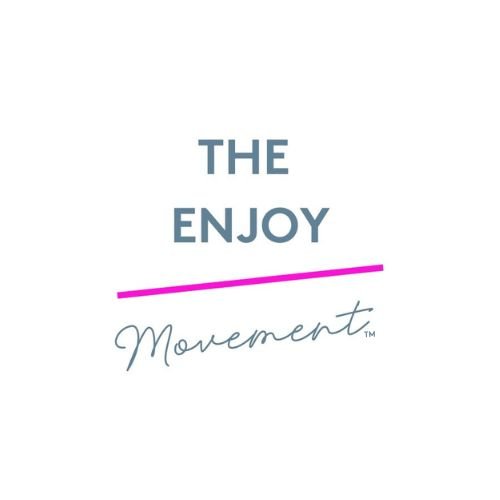Is Alcohol Wreaking Havoc with Your Lockdown Routine?
Guest Blog By Claire Davey
One of the most influential predicators of good physical and mental health is how much alcohol we consume. In a lockdown situation where our movement is restricted and our usual routines are out the window (no doubt with an extra dose of pressures piled on top), it becomes more challenging to moderate, reduce or eliminate our drinking and create behavioural change. Recent polling by Alcohol Change UK suggests that almost one in five of daily drinkers in the UK said they had increased the amount of alcohol they consume during lockdown (Mathers, 2020).
Unfortunately we can get into the habit of self-medicating with alcohol, to help us relax, to help us socialise, to help us sleep - it offers the illusion of a short-cut. However, it can take up to ten days for the depressive or anxious effects of alcohol to leave our system (Grace, 2018), and it significantly reduces the quality of our sleep (Walker, 2017). I could go on dismantling the myths around alcohol and drinking, but my guess is that if you’re reading this you’ve already started doing that for yourself.
43% of women in the UK want to drink less, so if you’re struggling to crack this, know that you’re very much not alone (McVeigh 2015). Chances are that for every two friends you talk to about this, one of them will be having the same thoughts.
However, if we wait for a perfect time or opportunity to get working on this issue, then it will never come. There’ll always be someone’s wedding, a birthday, a holiday, or in this case: a pandemic. Much like exercise, you don’t have to know the destination to take the first step. All you have to know is that first step is going in the right direction.
I believe that the key to renegotiating our relationship with alcohol is about incrementally creating behavioural change, rather than white-knuckling it through. Having a dry period of 30 days can really help to embed these behavioural changes, although I think it works even better after 90, which is why my Teetotal Transformations programme runs for 12 weeks. It’s been proven by the University of Sussex that even those who return to drinking after 30 day abstinence challenges have healthier drinking practices up to six months later (de Visser et al 2016).
Recent research suggests that alcohol-free challenges, such as Dry Jan, are most effective for women, particularly those who are of above-average socio-economic status and who are health conscious (de Visser & Piper 2020). From my experience, and my upcoming PhD research, I know that women are at the forefront of creating non-traditional solutions for rethinking drinking practices. There’s something about this approach which works for women – I can’t wait to research why.
Renegotiating your relationship with alcohol is not just about drinking less units, it’s about reviewing many facets of life and creating behavioural change which supports sobriety, such as; good sleep, moving the body, addressing cravings, navigating social interactions, reviewing stressors like finances and life admin, to name but a few. It should be a holistic approach in order to increase chances of long-term, sustainable change - it’s about making the rest of our lives so fulfilling that alcohol seems to diminish it rather than add to it.
If you’ve found that the empty wine bottles have increased during lockdown, and are keen to renegotiate your relationship with alcohol, you can download my free e-book which supports you through a thirty day alcohol-free period by providing daily tasks or exercises that will enhance behavioural and mind-set change. For a deeper dive and 1:1 support, get in touch regarding Teetotal Transformations, which combines my performance and recovery coaching skillset to offer a judgement-free, forward-looking approach to changing drinking behaviours.
-
Claire Davey is a Recovery Coach based in Tonbridge, Kent. After almost a decade working as a Broker in London’s booze-soaked financial services industry, she decided to ditch the alcohol and ultimately the job. She now consults in the industry on a freelance basis, whilst pursuing a full-time PhD in the field of addiction & gender and helping others to renegotiate their relationship with alcohol.
Sources:
deVisser, R and Piper, R., ‘Short -and Longer- Term Benefits of Temporary Alcohol Abstinence During ‘Dry January’ Are Not Also Observed Among Adult Drinkers in the General Population: Prospective Cohort Study, Alcohol and Alcoholism, 2020, pp.1-7.
de Visser, R. O., Robinson, E., & Bond, R. (2016). Voluntary temporary abstinence from alcohol during “Dry January” and subsequent alcohol use. Health Psychology, 35(3), 281–289
Grace, A., This Naked Mind: Control Alcohol, HarperCollins (London, 2018).
Mathers, M., ‘Coronavirus: Increased alcohol consumption during lockdown could lead to ‘second health crisis’ warn researchers’, The Independent, https://www.independent.co.uk/life-style/health-and-families/health-news/coronavirus-alcohol-lockdown-health-research-alcoholism-a9468431.html (accessed 27/5/20)
McVeigh, T., ‘Women on the wagon’ club together to cut back on drinking. The Guardian. Retrieved on 4/8/2019 from https://www.theguardian.com/society/2015/jan/04/women-on-the-wagon-club-together-to-cut-back-on-drinking
Walker, M., Why We Sleep: The New Science of Sleep and Dreams, Penguin (London, 2017).

